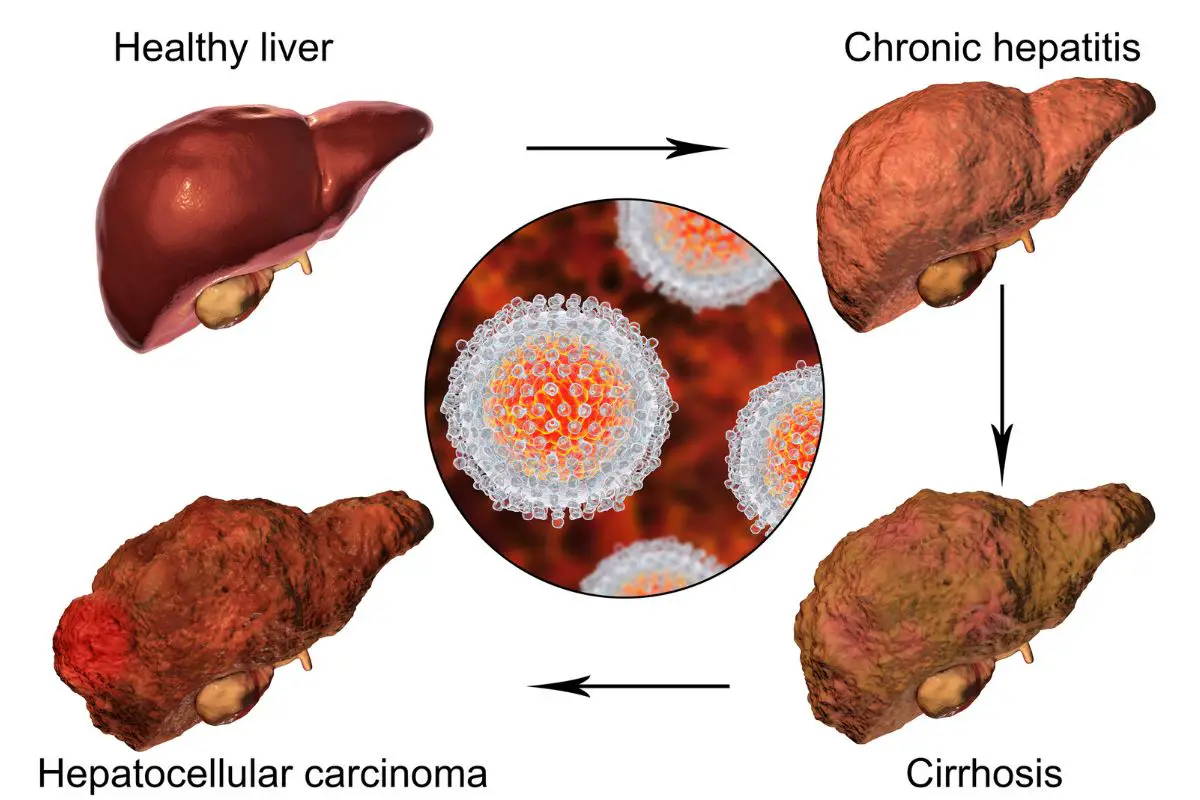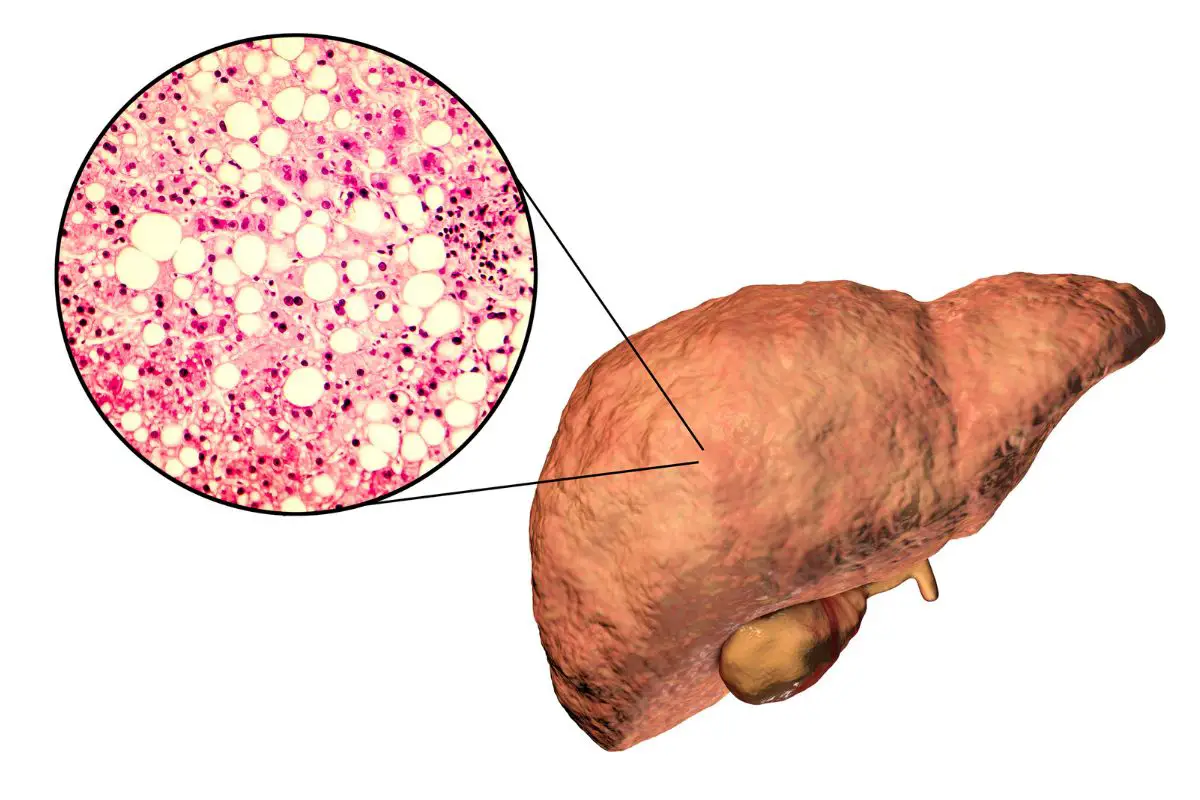Caffeine is a potent stimulant that affects the central nervous system. It is naturally produced in certain plants such as those that produce kola, coffee beans, nuts, cocoa beans, and tea leaves among others.
Although caffeine offers numerous health benefits, it may not be ideal for some people, especially those who experience caffeine sensitivity. In this article, we will discuss liver disease and caffeine sensitivity in detail.

Caffeine Sensitivity
Caffeine sensitivity varies from one individual to the other. Some people experience insomnia a few hours after drinking a small serving of cola or regular black coffee. Others can drink three espresso shots without experiencing jitters. Also, caffeine sensitivity may fluctuate throughout the day depending on several changing factors.
Although there is no test used for measuring caffeine sensitivity, the main categories include:
- Normal sensitivity– The majority of people who consume beverages containing caffeine such as coffee fall under the normal sensitivity group. Such individuals can consume up to 400 mg of caffeine daily without experiencing any significant side effects.
- Hyposensitivity– A study done in 2011 found that about 10 percent of people carry a gene that enables them to tolerate high caffeine intake. They can consume caffeine in large volumes, including late in the day without experiencing any side effects. They still sleep well through the night.
- Hypersensitivity– Individuals under this category do not tolerate even the smallest amount of caffeine. They experience negative side effects soon after consuming caffeine.
However, caffeine sensitivity should not be confused with an allergy to caffeine. Caffeine sensitivity is caused by numerous factors such as the ability of the liver to metabolize caffeine and genetics. On the other hand, caffeine allergy results from the immunity system mistaking caffeine for a harmful invader, thereby fighting it off with antibodies.
Symptoms of Caffeine Sensitivity
Individuals who are sensitive to caffeine experience a strong adrenaline rush upon consuming it. Those who are hypersensitive to coffee feel like they have taken five espresso shots after consuming a few sips of black coffee. People who are sensitive to caffeine metabolize caffeine slowly. Thus, their symptoms may last longer. They may show symptoms such as:
- Headache
- Anxiousness or nervousness
- Racing heartbeat
- Jitters
- Insomnia
- Restlessness
These symptoms are different from those of caffeine allergy. Individuals with caffeine allergy experience symptoms such as:
- Hives
- Swelling of the tongue or throat
- Itchy skin
- Anaphylaxis and difficulty breathing (in severe cases)
Liver Disease and Caffeine Sensitivity

Numerous research studies show that people who drink coffee regularly are less likely to experience liver problems such as liver cancer, fibrosis (a reaction to alcohol use disorder or hepatitis), liver cirrhosis (late-stage fibrosis), and non-alcoholic fatty liver disease.
One study found that drinking 2 cups of coffee daily reduces the risk of developing liver cirrhosis by 44 percent. The study also found that drinking 4 cups of coffee daily reduces its risk by 65 percent. Also, research shows that drinking 1 to 3 cups of coffee per day slows down liver conditions such as fibrosis, Hepatitis B, Hepatitis C, and non-alcoholic fatty liver disease. These research findings indicate that if you love drinking coffee regularly and moderately, you are increasing the chances of fighting liver problems.
Individuals who experience caffeine sensitivity produce a lower amount of a liver enzyme known as CYP1A2. It is an enzyme that controls the speed of the liver in metabolizing caffeine. Research shows that people with caffeine sensitivity take more time to process and eliminate consumed caffeine from the body system. As a result, they experience more intense and longer-lasting effects of caffeine.
How Does Caffeine Help with Liver Disease?
Besides caffeine, coffee contains at least 1,000 chemicals. Research shows that upon digesting caffeine, a chemical known as paraxanthine slows down the growth of a fibrosis scar. The chemical also helps fight alcohol-related cirrhosis, non-alcoholic fatty liver disease, hepatitis C, and liver cancer.
Also, two chemicals in coffee known as cafestol and kahweol are shown to help fight liver cancer. Drinking unsweetened coffee moderately works alongside the main treatments of hepatocellular carcinoma, the most common form of liver cancer. Also, acids in coffee fight the virus that causes hepatitis B.
Conclusion
Research shows that caffeine is a powerful tool in fighting liver disease. Although there is no recommended amount of caffeine that you should drink to fight liver disease, it is advised not to exceed 400 mg of caffeine per day, which is equivalent to four cups of coffee. People who are sensitive to caffeine should observe this limit strictly. Regardless of the benefits that caffeine offers, you should take care of your liver by maintaining a healthy lifestyle.